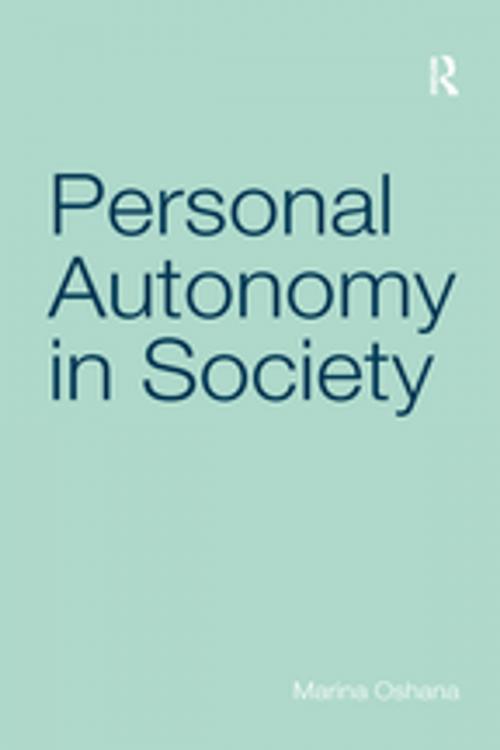| Author: | Marina Oshana | ISBN: | 9781351911955 |
| Publisher: | Taylor and Francis | Publication: | December 5, 2016 |
| Imprint: | Routledge | Language: | English |
| Author: | Marina Oshana |
| ISBN: | 9781351911955 |
| Publisher: | Taylor and Francis |
| Publication: | December 5, 2016 |
| Imprint: | Routledge |
| Language: | English |
People are socially situated amid complex relations with other people and are bound by interpersonal frameworks having significant influence upon their lives. These facts have implications for their autonomy. Challenging many of the currently accepted conceptions of autonomy and of how autonomy is valued, Oshana develops a 'social-relational' account of autonomy, or self-governance, as a condition of persons that is largely constituted by a person’s relations with other people and by the absence of certain social relations. She denies that command over one's motives and the freedom to realize one's will are sufficient to secure the kind of command over one's life that autonomy requires, and argues against psychological, procedural, and content neutral accounts of autonomy. Oshana embraces the idea that her account is 'perfectionist' in a sense, and argues that ultimately our commitment to autonomy is defeasible, but she maintains that a social-relational account best captures what we value about autonomy and best serves the various ends for which the concept of autonomy is employed.
People are socially situated amid complex relations with other people and are bound by interpersonal frameworks having significant influence upon their lives. These facts have implications for their autonomy. Challenging many of the currently accepted conceptions of autonomy and of how autonomy is valued, Oshana develops a 'social-relational' account of autonomy, or self-governance, as a condition of persons that is largely constituted by a person’s relations with other people and by the absence of certain social relations. She denies that command over one's motives and the freedom to realize one's will are sufficient to secure the kind of command over one's life that autonomy requires, and argues against psychological, procedural, and content neutral accounts of autonomy. Oshana embraces the idea that her account is 'perfectionist' in a sense, and argues that ultimately our commitment to autonomy is defeasible, but she maintains that a social-relational account best captures what we value about autonomy and best serves the various ends for which the concept of autonomy is employed.















